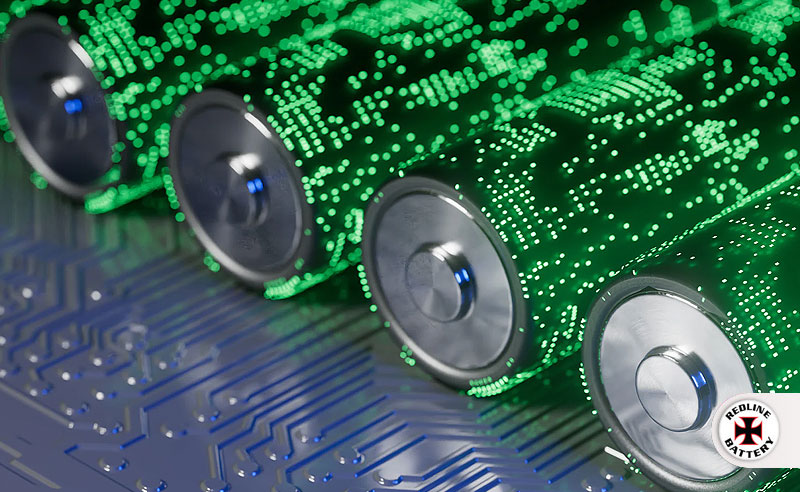
In today's rapidly evolving world, the demand for clean and efficient energy storage solutions has never been greater. As we seek to reduce our carbon footprint, transition to renewable energy sources, and electrify various sectors, the role of lithium batteries in shaping our future cannot be understated. Lithium batteries are at the forefront of this revolution, offering a promising pathway to a more sustainable and environmentally friendly energy landscape.
Lithium batteries have taken the world by storm since their commercial introduction in the 1970s. Their incredible energy density, long cycle life, and lightweight nature have made them the preferred choice for a wide range of applications, from mobile devices to electric vehicles and renewable energy storage. Let's delve into the transformative power of lithium batteries and explore how they are poised to shape our future.
The Anatomy of Lithium Batteries
Lithium batteries operate on a simple yet powerful principle. They consist of two electrodes, an anode (usually made of graphite) and a cathode (often composed of lithium cobalt oxide or other lithium-based compounds), separated by an electrolyte. When a voltage is applied, lithium ions move from the anode to the cathode through the electrolyte, generating an electric current.
This movement of lithium ions is reversible, allowing the battery to charge and discharge multiple times. It's this characteristic that gives lithium batteries their exceptional cycle life, making them ideal for applications where reliability and durability are crucial.
Lithium Batteries and the Electric Vehicle Revolution
One of the most significant contributions of lithium batteries to our future is in the realm of electric vehicles (EVs). The transportation sector is a major contributor to greenhouse gas emissions, and transitioning to EVs is a key strategy to reduce carbon emissions. Lithium batteries have played a pivotal role in making EVs a practical and affordable option for consumers.
The high energy density of lithium batteries means that EVs can travel longer distances on a single charge, making them a competitive alternative to traditional internal combustion engine vehicles. Furthermore, as technology continues to advance, lithium batteries are becoming more affordable, ensuring that EVs are accessible to a broader audience.
Renewable Energy Storage
Lithium batteries are also critical in the integration of renewable energy sources, such as solar and wind power, into our energy grid. Unlike fossil fuels, renewable sources are intermittent and can be challenging to predict. Lithium batteries provide a solution by storing excess energy when it's available and releasing it when needed, helping to stabilize the grid and ensure a reliable power supply.
Energy storage systems equipped with lithium batteries are being deployed on a large scale to mitigate the challenges posed by renewable energy sources. These systems play a pivotal role in making the transition to a greener, more sustainable energy future.
The Race for Advancements
The pursuit of ever-better lithium battery technology is a global endeavor. Researchers and innovators worldwide are working to enhance the performance, safety, and sustainability of these energy storage solutions. Innovations such as solid-state batteries, which replace the liquid electrolyte with a solid one, promise even higher energy density, faster charging, and improved safety. These advancements are paving the way for an even more sustainable and efficient energy landscape.
Sustainability and Recycling
One of the challenges associated with lithium batteries is the environmental impact of their production and disposal. The extraction of lithium and other raw materials can have ecological consequences, and improper disposal can lead to pollution. However, the industry is increasingly focusing on sustainability, with efforts to recycle and repurpose old batteries to reduce waste and reliance on new resources.
Moreover, research is ongoing to develop more environmentally friendly materials for lithium batteries. Lithium-ion batteries are relatively clean compared to alternatives, but there is always room for improvement in minimizing their environmental footprint.
The Road Ahead
Lithium batteries are a linchpin of our efforts to create a cleaner, more sustainable future. They are powering the electric vehicle revolution, enabling the integration of renewable energy, and driving innovation in energy storage technology. As we look to the future, the potential of lithium batteries is boundless. With ongoing research and development, it's likely that they will continue to evolve, becoming even more efficient and environmentally friendly.
As consumers, policymakers, and businesses increasingly prioritize sustainability and clean energy, lithium batteries are poised to play an ever more central role in powering our future. They are not just a technology of today but a beacon of hope for the generations to come. Embracing lithium batteries and investing in their development is not just a choice; it's a commitment to a brighter and more sustainable future for our planet.
More NewsReady to power up your journey? Visit Redline Battery Supply today and experience a world of battery solutions. Whether it's a battery health check, battery replacement, or just need expert advice, we've got you covered. Don't let battery power interruptions slow you down. Call us today.